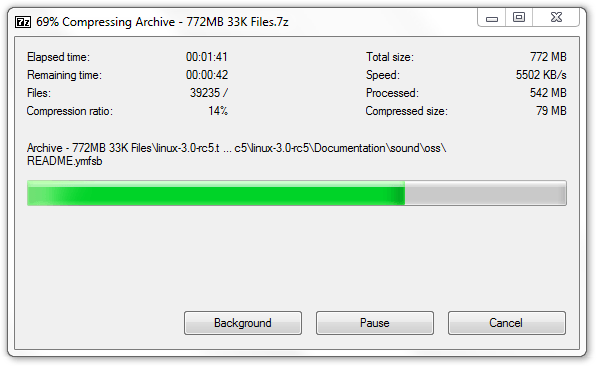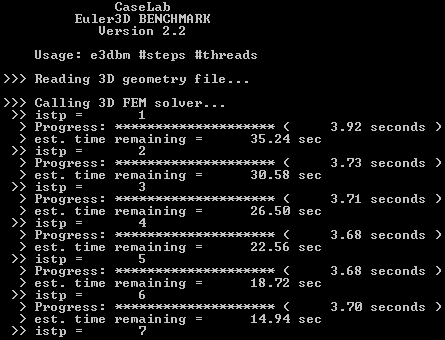- Qualcomm Launches Snapdragon 4 Gen 2 Mobile Platform
- AMD Launches Ryzen PRO 7000 Series Mobile & Desktop Platform
- Intel Launches Sleek Single-Slot Arc Pro A60 Workstation Graphics Card
- NVIDIA Announces Latest Ada Lovelace Additions: GeForce RTX 4060 Ti & RTX 4060
- Maxon Redshift With AMD Radeon GPU Rendering Support Now Available
Intel Core i7-4960X Extreme Edition Review

Intel’s latest processor series has arrived, and we’re looking to find out if it becomes the company’s greatest. Compared to Intel’s latest mainstream part, Haswell, IV-E avails a quad-channel memory controller, a far more robust PCIe configuration, and the only place to get six-core parts. Are there other perks to be found? Let’s find out.
Page 8 – Mathematics: 7-Zip & Euler3D
When hard drives densities measured in the megabytes or single-digit gigabytes, data compression became something that even the layman computer user took advantage of. In fact, even entire hard drives could be used in compressed mode to help increase the overall storage. Today, such methods aren’t required thanks to hard drives ranging in the thousands of gigabytes, but compression is still used on a regular basis by many people, either for storing a folder for backup, encoding music, converting a photo and et cetera. On servers, compression is often used to shrink mega-large log files.
For our compression testing, we enlist the help of 7-zip 9.20. We take a 772MB folder that consists of 39,236 highly-compressible files and archive it using an ‘Ultra’ level of compression using the LZMA2 algorithm. This results in an archive weighing in at about 137MB.


Given the fact that LZMA2 can make use of all 12 threads on the biggest CPUs we test, it seems that actually having to rely on all of them is going to be a scarce thing.
Euler3D
In terms of complexity, Euler3D is one of our most advanced benchmarks, and also one of the quickest to run. It calculates the fluid dynamics properties of the AGARD 445.6 aeroelastic test wing as it was tested in-house at NASA’s Langley Research center. It’s calculated using Euler equations, with results printed out as Hz and time-to-complete (seconds). A benchmark such as this is useful to those who work designing products where physics has to be considered, whether it be a wing, a car, a ship and so on.


As with previous synthetic benchmarks, the performance boosts with the six-cores are nicely exhibited here.
Support our efforts! With ad revenue at an all-time low for written websites, we're relying more than ever on reader support to help us continue putting so much effort into this type of content. You can support us by becoming a Patron, or by using our Amazon shopping affiliate links listed through our articles. Thanks for your support!





